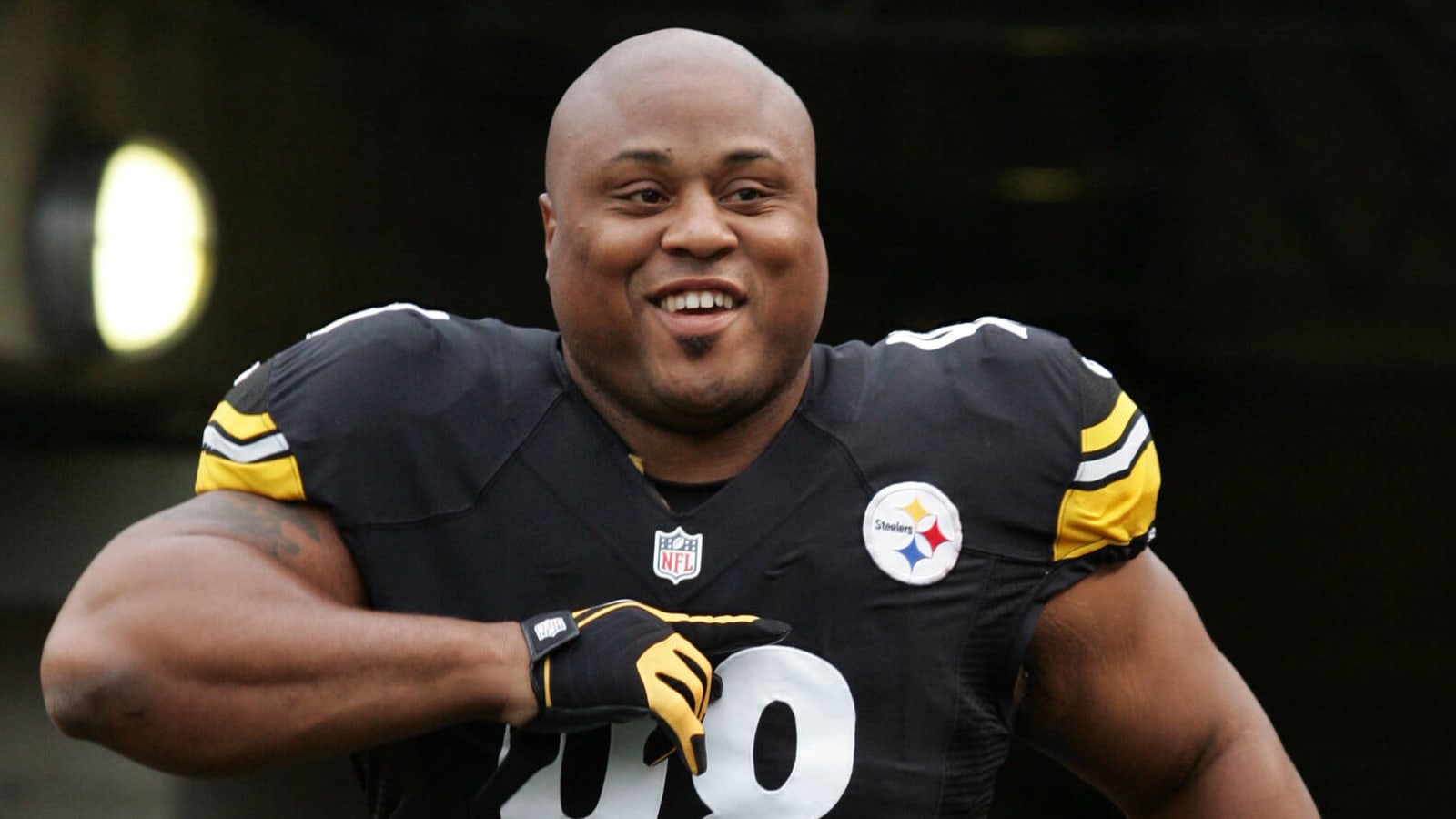
The Pittsburgh Steelers have been playing in Acrisure Stadium, formerly Heinz Field, since 2001. The stadium has seen hard-hitting division rivalry games. Fans have borne witness to bitter playoff losses and triumphant AFC Championship victories. It is nearly impossible to kick a long field goal into the stadium's open end, but for better or worse, it is where the Steelers call home.
On January 5th, 2002, the Steelers trailed the Cleveland Browns 24-7 in the AFC Wild Card game. It looked like it was going to be one of the most disappointing losses in Pittsburgh playoff history. In an effort to get the crowd fired up, the JumboTron operator put on the 1978 Styx hit Renegade, and the Steelers staged a miraculous fourth-quarter comeback. It was the pinnacle of Tommy Maddox’s career and the birth of a Pittsburgh tradition.
James Farrior, the former Steelers All-Pro and the middle linebacker for the franchise's last three Super Bowl teams, joined the Oh, Mama! podcast with Chris Mack from the 93.7 The Fan. Dick LeBeau had stated in a previous episode that he knew when the song played, he didn’t have to say anything. The stadium would go wild and the defense would make a play. Farrior intimated that the defense wasn’t strictly sold on the music, initially.
“Yeah, it was quite a song for us, and we definitely got pumped up when we heard that song,” Farrior stated. “There had been a period of time, if you talk to Casey Hampton, where we thought there was a curse.”
Renegade is such a staple at Steelers home games that it is easy to overlook how some players on the defense felt about the iconic moment. More often than not, Renegade results in big plays by the defense, but it isn’t infallible. Early on, Hampton and some of his teammates were skeptical about the extra pressure the moment put on the defense.
“We thought it was a bad sign,” Farrior explained. “Every time they played the song like, we would give up a first down, or something bad would happen. For a minute there, we thought we didn’t want the song anymore. I think we got things turned around, and we started making good plays after the song came on, so we ended up keeping the song.”
It is hard to imagine a Steelers home game without the familiar lyrics blasting in a big moment in the fourth quarter. In its infancy, the players still had the power to stop the song. The song was first used to jump-start the crowd with the offense on the field. It quickly morphed into a way to excite the crowd and motivate the defense.
“It ended up working out for us,” Farrior concluded. “Every time we played it that year (2008), it helped us out.”
Does New Data Show That "Renegade" Gives The Steelers 4th Quarter Advantage?
The debate has ranged for nearly two decades about whether the playing of the Styx classic influences the game. Mack interjected that in the 2008 AFC Championship game, the playing of Renegade led to a huge moment that propelled the Steelers into Super Bowl XLIII. It is the most famous example of the song generating a championship-level moment.
“That time in particular, I think it’s four or five plays later, Troy [Polamalu] reads Flacco’s eyes, picks the ball off, runs it back for a pick six,” Mack remembers. “Larry Foote said every once in a while, you guys would go back and watch the tape of that and just marvel at the fact that the footage is literally shaking.”
Troy Polamalu’s interception return that helped seal the Steelers' victory is the most successful moment in the song's history. Pittsburgh needed a huge play from the defense, and they got it. It also cemented the fan favorite into place at home games. It was an iconic moment in the franchise's history.
The Steelers still blast Renegade in the fourth quarter of close games to inspire the defense and rouse the fans into wild-eyed euphoria. No matter the situation, the energy can only be described as mystical when the screen goes black in the fourth quarter of a close game. Even through the television, it bleeds out of the stadium into every member of Steeler Nation around the country.
The big plays from the resulting moment earn their place in every Steelers fan's heart and pass into legend. Thankfully, Hampton and other detractors on the defense did not eliminate the playing of the song before it demonstrated the underlying magic it generates.
More must-reads:
- Three stars from Saturday’s NBA playoffs
- Recent hot streak could be a good omen for Twins
- The 'MLB Rookies of the Year' quiz
Breaking News
Customize Your Newsletter
 +
+
Get the latest news and rumors, customized to your favorite sports and teams. Emailed daily. Always free!

